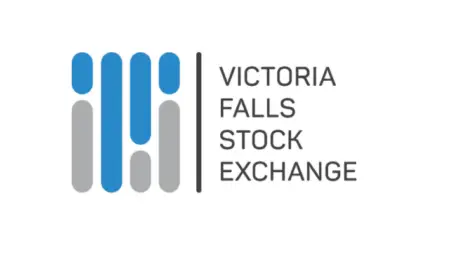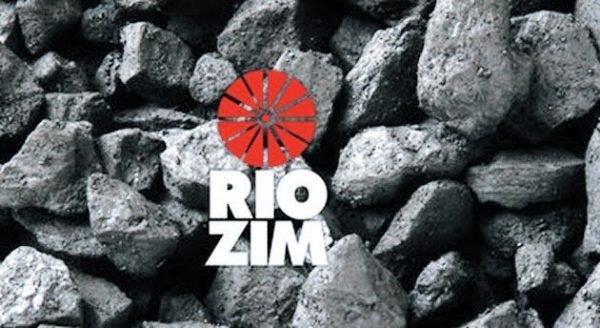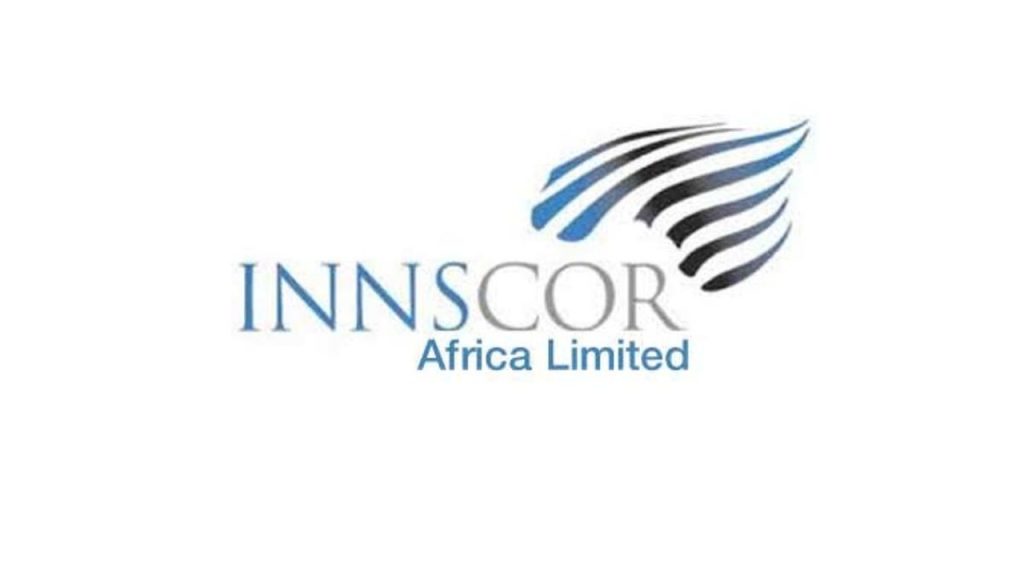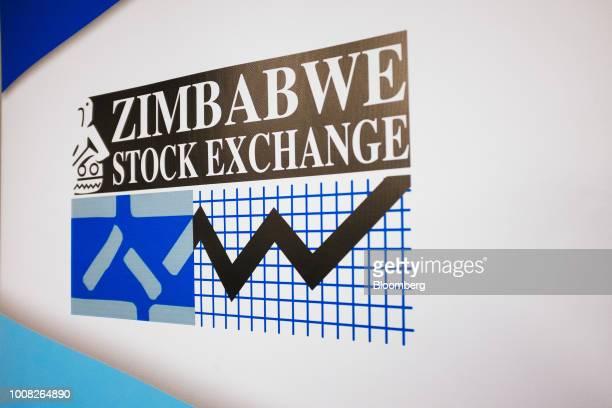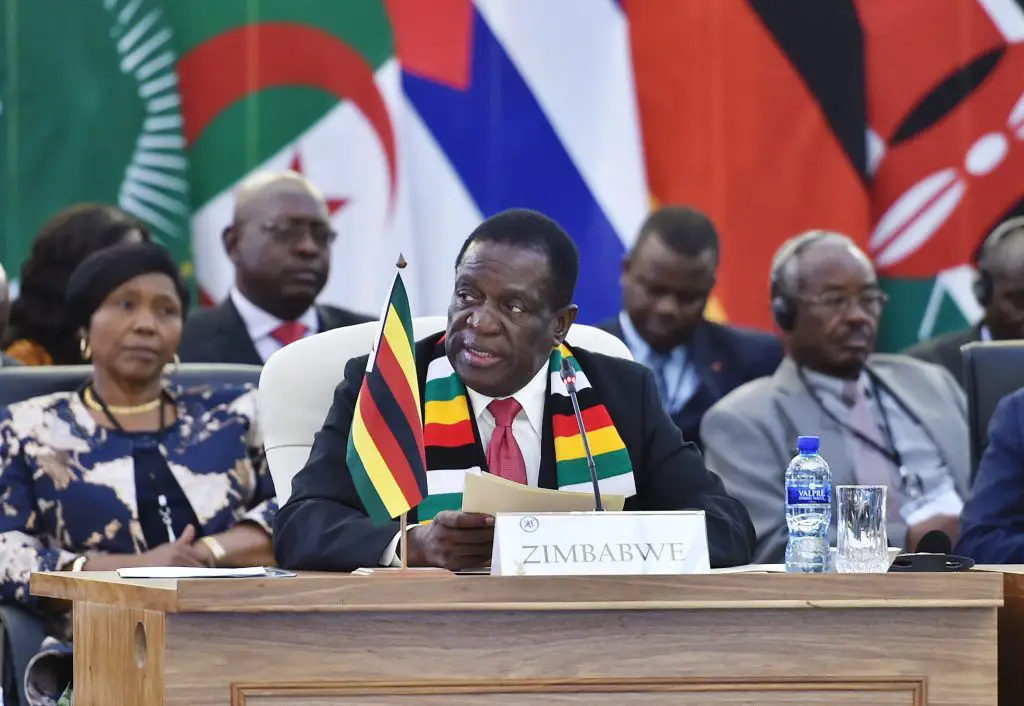- Abu Dhabi radiates optimism as over 300 startups join AIM Congress 2024
- TLcom Capital Raises $154 million in Funding to Boost Its African Growth
- Africa’s $824Bn debt, resource-backed opaque loans slowing growth — AfDB
- LB Investment brings $1.2 trillion portfolio display to AIM Congress spotlight
- AmCham Summit kicks off, setting course for robust future of US-East Africa trade ties
- Why the UN is raising the red flag on the UK-Rwanda asylum treaty
- Portugal’s Galp Energia projects 10 billion barrels in Namibia’s new oil find
- Wärtsilä Energy offers tips on how Africa can navigate energy transition and grid reliability
Browsing: ZSE
- The VFEX or Victoria Falls Stock Exchange is Zimbabwe’s exclusively United States dollar only stock market which was launched 3 years ago.
- The Zimbabwe Stock Exchange or ZSE’s main board has been shrinking because of companies migrating to the VFEX.
- Companies in Zimbabwe constantly experience a shortage of foreign exchange to support their increasingly import reliant businesses.
The number of companies that are delisting from the main board of the Zimbabwe Stock Exchange, often known as the ZSE, and moving their operations to the ZSE’s hard currency equivalent, the Victoria Falls Stock Exchange (VFEX), has been growing. When the central bank eliminated the favorable foreign exchange retention levels that had been the primary draw of the VFEX, it is anticipated that the outflow from the ZSE will slow down in 2023. This comes after the central bank eliminated the foreign exchange retention thresholds.
By listing, the REIT aims to attract focused and permanent capital for the promoter to develop further assets, support the Insurance and Pensions Commission and Ministry of Finance and Economic Development in their efforts to provide liquidity and deepen the savings pool through REIT products and also to provide retail and institutional investors quality and liquid commercial real estate investment vehicle.
Based on the published prospectors, the company said the economic growth of a nation is driven by a vibrant commercial infrastructure both industrial and retail properties to support production and trade.
The development of quality commercial property is more than imperative in the Southern African country as the economy is set for a path of recovery that is expected to revitalize significant economic activity.
“The participation of local beneficiaries in the development and ownership of such property fosters an inclusive capital growth and sources of passive income for average …
Riozim Limited the Zimbabwe based, and Zimbabwe Stock Exchange-listed diversified miner, has more going wrong for it than right.
For a mining company looking at news reports around it, analyst coverage and its financial reports one cannot help but wonder if all is well at one of the oldest ZSE-listed mining companies.
The company has been in the news for poor labour relations with its workers and for poor operational and financial performance and it looks like there is no end in sight for the troubled miner. Investors on the ZSE and in the diversified miner got some reprieve when Bloomberg broke the story that Riozim had bought a diamond miner in Namibia in a move meant to herald the company’s foray into the rest of the continent and increase its investment activities in Zimbabwe.
- RioZim can be reasonably called a beleaguered or troubled company. It is not exactly
Post the Restructure, in January 2018, Probrands disposed of its dairy assets to a newly incorporated company, Prodairy, a dairy and dairy products processor.”
The company has a long history of brushes with the law.
In 2013 Innscor Africa Limited was fined US$ 60 million for not following the proper procedures in its acquisition of majority shareholding in National Foods Limited in 2013. The CTC, after conduction investigations on the transaction, found that Innscor acted against regulations when it purchased a majority interest in National Foods.
Innscor Africa Limited as in its most recent run-in with CTC did not notify them of their intention to acquire a majority stake in National Foods Limited which is a contravention of the Competition Act.…
According to an article by Forbes dated June 23, 2022, the world’s first stock index appeared in July 1884 when the ‘Dow Jones Transportation Index’ was published in the US by newspaperman Charles Dow. The index comprised 11 transport stocks including nine railway companies, a steamship company and a telegraph operator.
The index average was calculated by adding all its share prices together and dividing the total by 11 – the number of shares.
There’s a more in-depth look at the indices on the ZSE, along with the profiles for the fourth quarter of 2022 put together.
ZSE said that indices provide the market with better performance apparatus and assist in choosing sector-based investing strategies.…
Padenga Holdings Limited fits this description in letter and spirit. During the six months under review, the company achieved US$ 57 million in revenues, which was more than double what the company achieved the previous year. The company increased its revenues by 184% from US$ 20 million in 2021. The company’s mining operations contributed 91% of the revenues.
The crocodile operations contributed a negligible US$ 5 million to the top line. If this trend continues, supported by the elevated gold prices, it would not be unreasonable to surmise that Padenga will soon become a pure-play gold producer or even diversify into other precious metals.
The crocodile business could soon be a thing of the past since gold mining activities have largely eclipsed it. This is all speculation as the company has not made an official statement on the future strategic direction of the company.…
- Zimbabwe Stock Exchange has been one of Africa’s best performing stock markets during the years 2019 to 2021
- Zimbabwe’s economy officially dollarized for the second time since 2009 when it first abandoned the use of the Zimbabwe dollar.
- The Zimbabwe Stock Exchange is home to some high quality companies that generate consistent quality returns.
- When dollarization first occurred in 2009 companies in Zimbabwe were left poorly capitalized and in need of fresh capital in hard currency.
- The need for fresh capital resulted in a flurry of rights issues from companies listed on the Zimbabwe Stock Exchange which for the most part were poorly subscribed leading to the dilution of existing shareholders who could not pursue their rights when dollarization initially occurred.
- This second phase of dollarization will be like the initial phase for investors who are not prepared for it but will also be a significant opportunity for those with
- Zimbabwe is anticipating the listing of some Real Estate Investment Trusts (REITs) this year.
- ZSE is expected to list the fifth ETF, Cass Saddle Agriculture ETF this week
- FINSEC introduced automated contract writing and derivatives trading, complete with direct integration of the trading, clearing, custody, and settlement facilities
- VFEX introduced broker-controlled accounts to ensure convenience in trading on the US dollar-denominated stocks trading platform
- VFEX is expected to launch its mobile securities trading platform, VFEX-Direct, at the end of this month in a move meant to simplify trading
This year is shaping up to be a defining year for Zimbabwe’s capital markets. Financial Securities Exchange (Private) Limited introduced derivatives and chatter over a new asset class has whet curious investors’ appetite.
Zimbabwe is anticipating the listing of some Real Estate Investment Trusts (REITs) sometime this year, and this could deepen the country’s capital markets.
The Zimbabwe Stock Exchange (ZSE) is …
The movement of exchange rates on the parallel market has been caused by the government itself. Firstly, the government introduced a currency that economic agents have no confidence in because it did not have the macroeconomic fundamentals to give it credence. There was no parallel market for foreign currency during the years that the country made use of a basket of currencies.
The parallel market only emerged when the government introduced a surrogate currency called the bond note which was said to be at par with the United States dollar. No sooner than the surrogate currency had been introduced that the parallel market emerged, and United States dollars started trading at a premium.
Secondly, the government reportedly purchases foreign exchange on the parallel market. Through the central bank, the government issues new currency and then purchases foreign currency on the parallel market and drives up the exchange rate. It has …
The president announced in a May 7 televised speech that banks had been banned from lending in a bid to stem the precipitous decline of the local currency inter alia increasing capital holding tax, banning third party transactions on the local bourse, and increasing Intermediated Money Transfer Tax (IMTT).
The move came as the local currency had been depreciated against the United States dollar. This is amid high demand for the greenback which is seen as a store of value.
An executive at an agro-processing firm, name with-held, told NewZimbabwe that his company can’t borrow what it needs to pay 500 farmers for the soy and sugar beans. It contracted them to grow, or fund the purchase of inputs such as fertilizer for the next season’s crop.…





